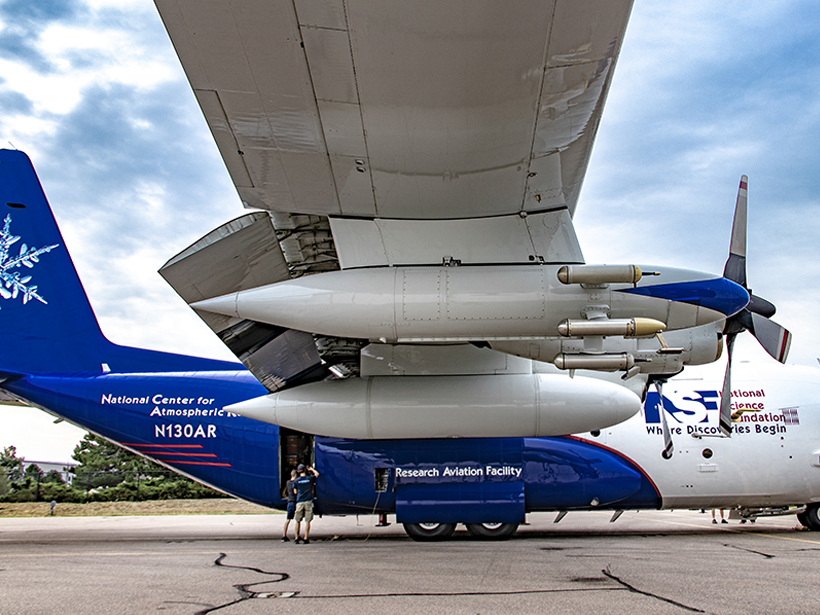The University Corporation for Atmospheric Research (UCAR) will continue to manage the National Center for Atmospheric Research (NCAR) for at least the next 5 years under an agreement that UCAR signed with the National Science Foundation last week.
The agreement, which takes effect on 1 October (the beginning of fiscal year 2019), provides up to $630 million over 5 years to manage NCAR. As a major Earth system science research and education center, NCAR manages some geoscience facilities—including the NCAR-Wyoming Supercomputing Center and specialized research aircraft—for the National Science Foundation (NSF).
The agreement, signed on 19 September, could also be extended for an additional 5 years with the approval of the National Science Board, which governs NSF.
UCAR, which has managed NCAR since 1960, is a Boulder, Colo.–based nonprofit consortium of 117 colleges and universities focused on atmospheric and related Earth system sciences. NCAR makes up a significant part of UCAR’s total staff and budget. Of about 1,330 staff at UCAR, 850 of them are at NCAR, and UCAR’s total FY 2017 budget of about $247 million included about $197 million for NCAR.
“Taking Our Science to the Next Level”
“The future of our collective sciences is Earth system science, of which the atmosphere is a constituent fluid that couples with the ocean, the land surface, and the cryosphere.”
UCAR president Antonio Busalacchi told Eos that with the agreement finalized, he is most excited about “taking our science to the next level.” That next level, he said, links the atmospheric, oceanographic, hydrologic, and cryospheric sciences.
“The future of our collective sciences is Earth system science, of which the atmosphere is a constituent fluid that couples with the ocean, the land surface, and the cryosphere,” Busalacchi said.
Busalacchi also said that he looks forward to UCAR and NCAR continuing to have a focus on diversity.
“As a leading national center, we need to walk the talk,” he said. “The geosciences are clearly underrepresented, and we have an opportunity and a responsibility to lead in that regard in getting more underrepresented minorities involved in the geosciences.”
A Success Story
William Easterling, director of NSF’s Directorate for Geosciences, said in a press release that “NCAR is among the nation’s greatest scientific success stories.” He added that NCAR’s success is in no small measure a product of its “consistently excellent oversight by UCAR.”
—Randy Showstack (@RandyShowstack), Staff Writer
Citation:
Showstack, R. (2018), UCAR to keep managing National Center for Atmospheric Research, Eos, 99, https://doi.org/10.1029/2018EO107121. Published on 28 September 2018.
Text © 2018. The authors. CC BY-NC-ND 3.0
Except where otherwise noted, images are subject to copyright. Any reuse without express permission from the copyright owner is prohibited.

